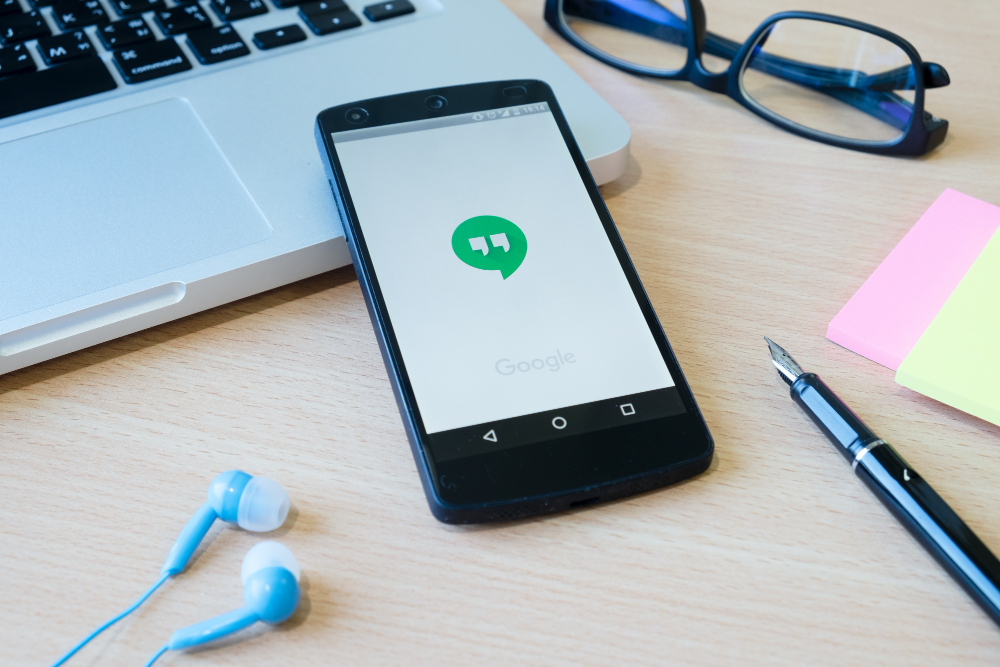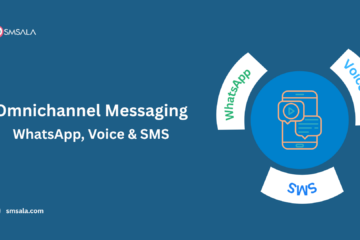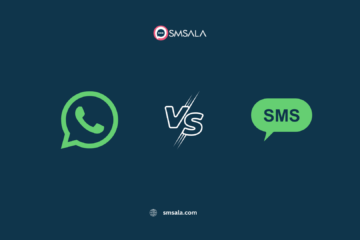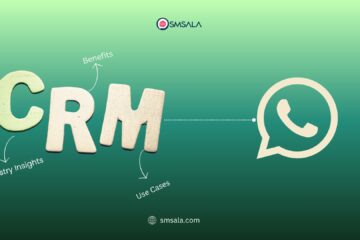Check your phone and you are likely to find some information: the majority of the unread emails go unread, yet each WhatsApp announcement catches your eye. It is not only you, but the way billions of others will act every day. In the case of businesses, this mere fact has made WhatsApp Bulk Messaging one of the strongest tools of communication in the year 2026.
Customers prefer fast updates, personal interactions, and practical information without the need to locate annoying spam in their inboxes. It can be a sale notification, an appointment reminder, a support response, it will be received immediately, and almost always read.
This tutorial simplifies all you need to know about WhatsApp Bulk Messaging, how it works through the WhatsApp Business API, and why companies such as the SMSala are simplifying how brands globally are reaching out to customers at scale.
What is Bulk Messaging on WhatsApp?
In other words, it is known as WhatsApp Bulk Messaging, which means that it is possible to send messages to a big number of recipients and make it personal. In contrast to a WhatsApp group, where all the users can see the responses of others, bulk messaging sends your message directly to the customers as a one-to-one message.
Imagine sending 1000 letters via mail, except that the letter was already in a sealed envelope with the name of the receiver on it. It might be the same message, but the experience is one-to-one.
And it’s not just text. Businesses can attach:
- product images
- video tutorials
- invoices in PDF
- quick voice notes
- even payment links
That’s what makes it far more versatile than SMS.
Why Businesses Swear by WhatsApp Bulk Messaging in 2026
If you’re wondering why so many brands are putting budget into WhatsApp, here are the standout reasons:
1. The Audience is Already There
With more than 2.8 billion people using WhatsApp every month, the platform doesn’t need convincing. Your customers are already on it.
2. The Engagement is Ridiculous
Industry reports show 98% open rates on WhatsApp, compared to email’s 20%. That means your message is almost guaranteed to be seen.
3. Conversations Feel Natural
Unlike email campaigns that feel formal, WhatsApp chats mirror how friends and families talk. Customers reply faster and with more honesty.
4. Global Without the Cost Headache
Sending bulk SMS internationally can get expensive fast. WhatsApp offers a more budget-friendly way to reach customers across borders.
5. Trust Comes Built-In
Verified WhatsApp Business accounts use your business name and information, which make the customers sure that they communicate with the authentic one.
Enter the WhatsApp Business API
Here’s the catch: the free WhatsApp Business app is fine for small shops sending a handful of messages. But if you’re a brand with thousands of customers, you’ll hit limits quickly. And that is where the WhatsApp Business API fits.
The API is simply the engine that enables software (such as CRMs, marketing tools or bespoke dashboards) to integrate with WhatsApp directly.. It’s not something you “download,” but rather a set of tools your provider helps you plug into.
What It Lets You Do
- Send bulk notifications instantly.
- Use pre-approved message templates on WhatsApp to roll out campaign at a faster rate.
- Auto-respond using bots and autoresponders.
- Extract customer insights on CRM systems such as Salesforce or HubSpot and customize messages.
- Monitor real-time delivery, delivery rates and responses.
An example of this would be a fashion retailer who would send 10,000 subscribers a message about a Weekend Sale with a catalog and a clickable button of Shop Now all using WhatsApp.
The Practical Application of WhatsApp Bulk Messaging
Here’s a simple breakdown:
Open Business Account– open a business account via an official provider such as SMSala.
Make Templates- WhatsApp needs campaign templates (offers or reminders approved).
Import Contacts- Pull your own CRM or spreadsheets.
Send in Bulk– Send messages at once, but each message will look like a personal conversation.
Results Analysis– Be able to know who opened, clicked, and replied.
It can be a technical process, and since the correct partner is hired, it will be as easy as starting an email campaign.
Applications of WhatsApp Bulk messaging in real life
These are just but a few instances where it is making a physical difference:
Retail: Send flash sale messages or out of stock messages.
Healthcare: Lab results and appointments.
Education: Examination, fee and event notifications.
Travel: Delivery of boarding passes and last minute flight changes.
Finance: Investment notices and investment alerts.
You do not wait until the customer opens an email address, but you go directly into the chat application that the customer opens dozens of times per day.
Benefits That Go Beyond Just Messaging
WhatsApp Bulk Messaging isn’t about spamming—it’s about scaling personal communication. Here’s why businesses love it:
- Feels personal even at scale – each message lands individually.
- Boosts conversions – a clickable CTA in WhatsApp often gets faster responses than email.
- Supports two-way communication – customers can reply, unlike bulk SMS blasts.
- Works in multiple languages – essential for global campaigns.
- Strengthens brand image – verified accounts add credibility.
The Hurdles You Should Know
Of course, nothing’s perfect. A few challenges exist:
- Compliance rules – WhatsApp doesn’t allow unsolicited spam. You need opt-ins.
- Template approvals – promotional content must be pre-approved.
- Per-message costs – charges vary depending on region and type of conversation.
- Managing consent – businesses must store and respect customer permissions.
Handled incorrectly, these can be roadblocks. Handled well, they’re just routine guardrails.
SMSala: Making Global Messaging Simple
If you’re serious about scaling WhatsApp Bulk Messaging, you’ll need a trusted partner. That’s where SMSala comes in.
SMSala has been identified as a messaging industry giant that assists businesses of both small and big scales, including startups and enterprises, to reach their customers around the world. Their strength lies in making complex setups simple:
- Coverage across 200+ countries
- Easy CRM and ERP integration
- 24/7 technical and compliance support
- Experience running campaigns for diverse industries
Whether you’re sending appointment reminders in Dubai or e-commerce promotions in India, SMSala provides both the infrastructure and the expertise to get it right.
Best Practices for WhatsApp Bulk Messaging
If you’re planning campaigns, a few habits separate effective brands from spammy ones:
- Always secure opt-in – Never message without consent.
- Segment smartly – Send different messages to loyal buyers vs. new leads.
- Use media wisely – Images or PDFs can add value but don’t overload.
- Be concise – WhatsApp isn’t for long essays.
- Provide genuine value – discounts, updates, or helpful info.
- Respect timing – Nobody wants pings at 2 AM.
- Test, learn, improve – Monitor metrics and refine campaigns.
WhatsApp shouldn’t really be a megaphone, it should be a starting point to a conversation.
WhatsApp Bulk Messaging vs. Traditional SMS
Here’s how they stack up:
| Feature | WhatsApp Bulk Messaging | SMS Marketing |
| Open Rate | ~98% | ~20% |
| Media Support | Rich (images, videos, PDFs) | Text only |
| Global Cost | Lower for campaigns | Higher for international |
| Trust | Verified profiles | Often unverified numbers |
| Interactivity | Two-way | Mostly one-way |
For most businesses, WhatsApp simply provides more bang for the buck.
The Road Ahead for WhatsApp Bulk Messaging
WhatsApp isn’t stopping at messaging. The in-app shopping carts, payments, and AI-based chatbots are in the pipeline. Very soon, a customer will be able to find, shop, pay, and support, all within WhatsApp without leaving a browser.
To businesses, this is what turns WhatsApp not into a notification service, but a complete customer engagement ecosystem.
Final Thoughts
By 2026, WhatsApp Bulk Messaging will be a marketing experiment that is a necessity. It is straight, it is entertaining and it is where the customers are already spending their time.
To companies that desire to be included in that everyday conversation, the WhatsApp Business API and service providers like the SMSala provide a definite way ahead.
The bottom line? If you want customers to not just see your message but actually act on it, WhatsApp is no longer optional. It’s the conversation you can’t afford to miss.



